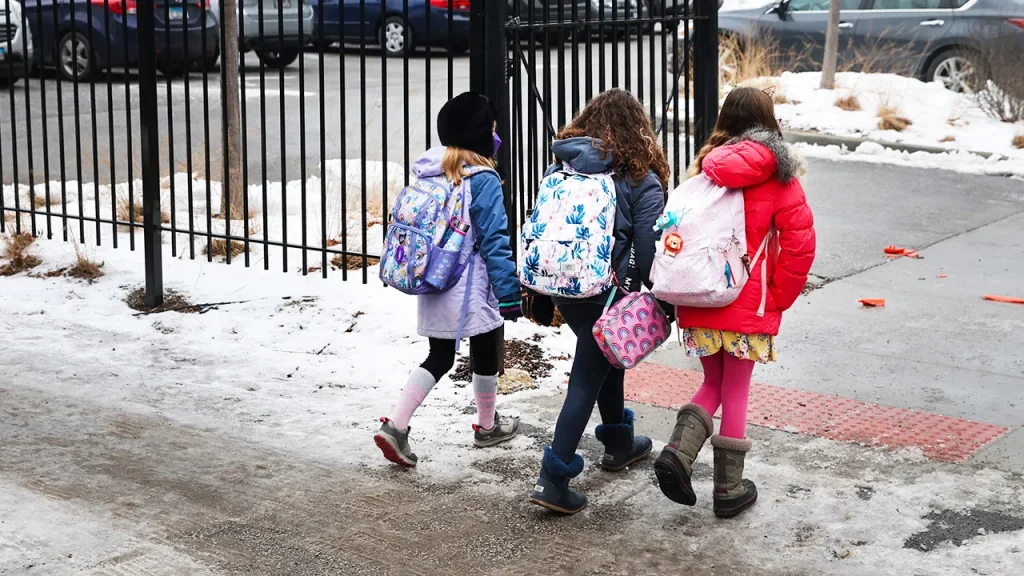Morning Briefing: America’s Education, Politics, and Current Events
In the heart of America’s third-largest city, a troubling disparity has emerged between educational spending priorities and student outcomes. Chicago public schools have recently come under scrutiny for allocating millions toward travel expenses while facing a fundamental crisis: many students cannot read at grade level. This situation highlights a broader national conversation about educational priorities and resource allocation in public school systems. As communities across the country struggle with literacy challenges, questions arise about whether administrative spending truly supports the core mission of education – preparing students for success through fundamental skills like reading. The disconnect between expenditure and outcomes raises serious concerns about accountability and effectiveness in one of America’s largest school districts.
Meanwhile, the political landscape continues to experience turbulence as former President Donald Trump responds to what he described as “lowlifes” amid Republican Party tensions following Representative Marjorie Taylor Greene’s unexpected departure from a key committee. This internal GOP conflict reflects deeper divisions within the party as it navigates its identity and direction. The situation underscores how personal allegiances and ideological differences continue to shape American politics, with significant implications for party unity heading into future elections. These tensions aren’t merely internal squabbles but rather represent fundamental questions about the Republican Party’s priorities and leadership as it faces crucial political crossroads.
In law enforcement news, the nationwide manhunt for one of the infamous “Slender Man” stabbers has concluded with an out-of-state capture. This case, which originally shocked the nation with its connection to internet folklore influencing real-world violence, returns to public attention as authorities successfully located the individual. Concurrently, Chicago faces continued scrutiny over crime policies after a woman was identified in a train fire attack, prompting criticism from former Trump administration officials regarding the city’s approach to public safety. These developments reflect ongoing national debates about criminal justice, mental health, and public safety policies across America’s urban centers.
The American higher education landscape is witnessing a significant shift as southern colleges report major enrollment increases, attributed partly to students seeking alternatives to the campus cultures at elite institutions. This migration pattern reflects changing student priorities and values in selecting educational environments. Simultaneously, the COVID-19 pandemic continues to reveal aftershocks in American society, exemplified by a former television anchor heading to prison following a $63 million fraud conviction related to pandemic relief funds. These stories highlight how educational choices and financial accountability remain central to American cultural conversations, with institutions and individuals alike facing consequences for their decisions during challenging times.
International affairs continue to impact American political discourse, with Senator Marco Rubio claiming “tremendous progress” in Ukraine peace negotiations – a development that could significantly influence U.S. foreign policy priorities. Meanwhile, Israeli forces have revealed what they describe as a massive Hamas “root tunnel” beneath a UN compound, further complicating the geopolitical situation in the Middle East and America’s position on the conflict. These international developments intersect with domestic concerns about digital deception, as Elon Musk’s X platform exposes hidden account locations of purported foreign “patriots,” raising questions about information integrity in the digital age. The interplay between international events and domestic politics continues to shape America’s global standing and internal political conversations.
On the cultural front, Americans find themselves divided even on seemingly lighthearted topics like the “best time” to display Christmas trees, reflecting how seasonal traditions remain subject to passionate debate. Medical innovations continue with new weight-loss treatments showing promising fat reduction results, though experts urge caution – highlighting America’s complex relationship with health innovations and body image. In royal news, Kate Middleton reportedly extends an olive branch to Prince Andrew’s daughters amid ongoing Jeffrey Epstein-related controversies, a story that captures American fascination with British royal dynamics. These cultural touchpoints, from holiday traditions to health breakthroughs to international figures, demonstrate how diverse interests continue to shape American cultural conversations across regional and political divides.


